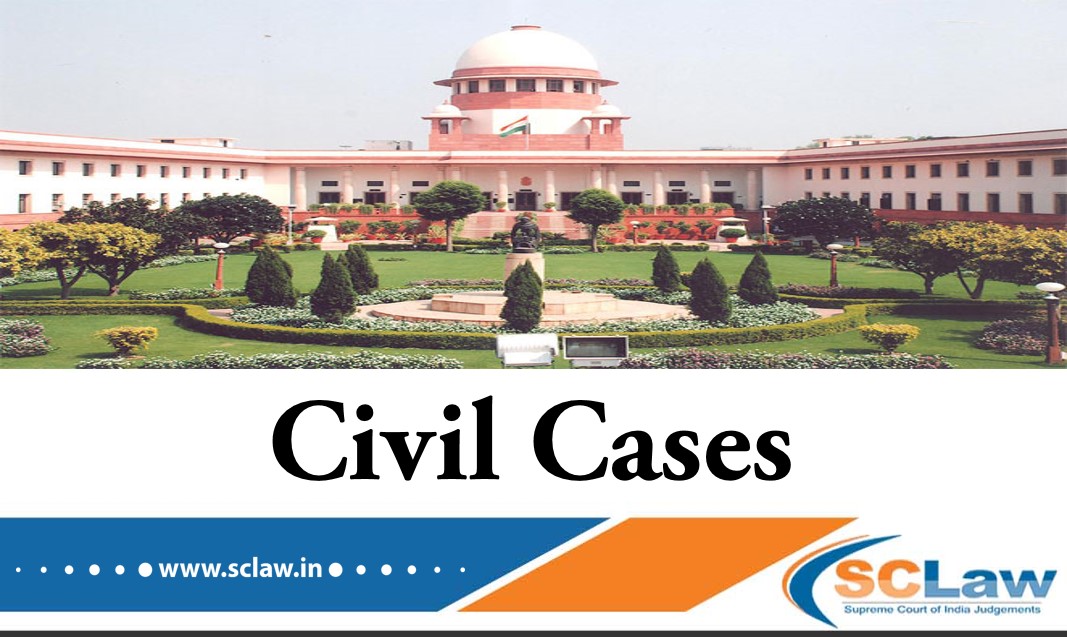Witness – Interested witness – Natural presence – Incident of stabbing taking place at night inside the house of deceased in the presence of son and wife whose presence was natural at the scene of occurrence
AIR 1998 SC 1492 : (1998) CriLJ 846 : (1997) 9 JT 405 : (1997) 7 SCALE 309 SUPREME COURT OF INDIA ELKUR JAMEESU — Appellant Vs. STATE OF…
Testimony of Investigating Officer regarding recovery of revolver and its working condition corroborated by recovery witness – Police cannot be said to have planted said revolver – Accused rightly convicted.
AIR 1998 SC 1516 : (1998) CriLJ 1103 : (1998) 1 Crimes 10 : (1997) 9 JT 488 : (1997) 7 SCALE 324 : (2000) 4 SCC 510(1) :…
Interlocutory application–Withdrawal of–Court need not go into the correctness or otherwise of the allegations made by the applicant against the appellants or any other person.
2007(4) LAW HERALD (SC) 2726 IN THE SUPREME COURT OF INDIA Before The Hon’ble Mr. Justice S.B. Sinha The Hon’ble Mr. Justice Harjit Singh Bedi Civil Appeal No. 6327…
Public Auction—Invitation for participation in public auction ensures transparency and it would be free from bias or discrimination and beyond reproach.
2007(4) LAW HERALD (SC) 2719 IN THE SUPREME COURT OF INDIA Before The Hon’ble Mr. Justice Dr. Arijit Pasayat The Hon’ble Mr. Justice S.H. Kapadia Civil Appeal No. 4002 of…
Penal Code, 1860 (IPC) – Section 149 – Unlawful assembly – Acquittal of co accused
AIR 1998 SC 1533 : (1998) CriLJ 1110 : (1998) 1 Crimes 84 : (1997) 10 JT 87 : (1997) 7 SCALE 516 : (1998) AIRSCW 563 : (1997)…
Penal Code, 1860 (IPC)-Sections 34, 300 – Common intention – Murder – Determination
AIR 1998 SC 1553 : (1998) CriLJ 1563 : (1997) 4 Crimes 407 : (1997) 7 SCALE 629 : (1998) AIRSCW 903 : (1997) 10 Supreme 404 SUPREME COURT…
Constitution of India, 1950 – Article 16 – Daily wager – Regularisation of service – Respondents employed on daily wages – High Court directed that on basis of Notification G.O.Ms No. 212, respondent employees shall be regularised w.e.f. the date they completed five years of continuous service
AIR 1999 SC 1601 : (1998) SCC(L&S) 1747 SUPREME COURT OF INDIA DISTT. COLLECTOR/CHAIRMAN AND OTHERS — Appellant Vs. T. DEVENDERPAL SINGH AND OTHERS — Respondent ( Before :…
Evidence Act, 1872 — Section 24 — Extra — judicial confession — Accused confessing to his uncle and other villagers that he had quarrelled with deceased and gave lathis blow on head of deceased and locked him in a room.
AIR 1995 SC 1943 : (1995) CriLJ 3225 SUPREME COURT OF INDIA BALU RAM — Appellant Vs. STATE OF RAJASTHAN — Respondent ( Before : G. N. Ray, J;…
Contract Act, 1872 – Section 126 – Bank guarantee – Enforcement of – Works contract – Bank guarantee has to be read in conjunction with terms of contract – Failure to furnish extended terms of bank guarantee – State not obliged to file suit for a specific performance requiring contractor to furnish guarantee
AIR 1999 SC 3466 : (2000) 10 SCC 503 : (1999) AIRSCW 3452 SUPREME COURT OF INDIA MAKHARIA BROTHERS — Appellant Vs. STATE OF NAGALAND AND OTHERS — Respondent…
Passports Act, 1967 – Sections 10(3)(e) and 10A (inserted by Act 17/2002) – Criminal Procedure Code, 1973 (CrPC) – Sections 102 read with 165, 104 – Seizure of passport – Impounding of same, by police and Court – Permissibility – Impounding of passport can only be done by Passport Authority
AIR 2008 SC 1414 : (2008) CriLJ 1599 : (2008) 5 CTC 277 : (2008) 2 JT 174 : (2008) 2 SCALE 46 : (2008) 3 SCC 674 :…















